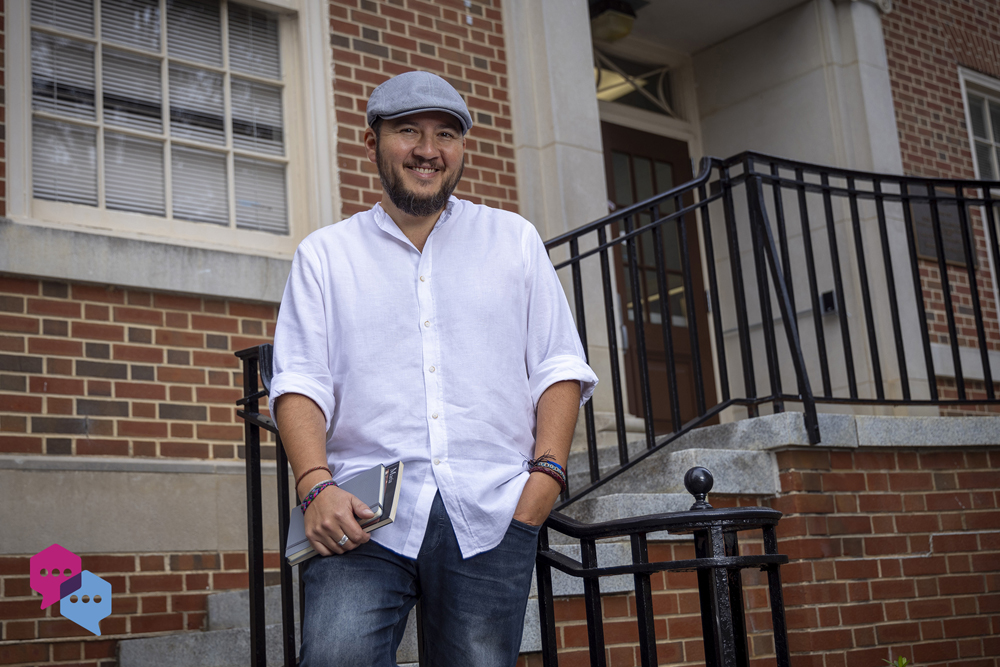Oswaldo Estrada is a professor in the Department of Romance Studies within the UNC College of Arts and Sciences and director of the Faculty Fellows Program within the Institute for the Arts and Humanities. He studies literary representations of otherness, coloniality, violence, and gender.
Q: How did you discover your specific field of study?
A: I was taking pre-med classes as an undergraduate at the University of California, Davis when I decided to enroll in a Spanish literature course for fun. Although I was born in the U.S., my parents went back to Peru when I was 4 months old. When I “came back” to the U.S. at the age of 14 — with an American passport and without speaking a word of English — I stopped taking formal Spanish. My goal was to learn English, and like a good Latin American immigrant, I went to college thinking I would become a doctor, a lawyer, or an engineer.
Little did I know that taking that Spanish literature class during my sophomore year would change my life forever. I fell in love with literature, with my native language, with my culture. And I realized then that I wanted to read and write for the rest of my life.
Q: Academics are problem-solvers. Describe a research challenge you’ve faced and how you overcame it.
A: Writer’s block. To avoid the blank page, I’m always writing something in my head. I do this on my bike to campus, when I walk, at the gym, and when I’m in meetings. I rehearse ideas, create first sentences and dialogues, and think about how to apply certain theories to an article or a book that I’m writing. That way, I always have something to write when I sit in front of the computer and don’t have to start from scratch.
Q: Describe your research in five words.
A: Understanding Latin American literature & culture.
Q: Who or what inspires you? Why?
A: My mother. She was a teacher in Peru and left everything behind to raise her children in a safe environment, away from the political violence of the 1980s and ’90s. In the U.S., far from her world and her family, she had to reinvent herself. She became a nurse assistant and worked day and night shifts to support us, taking very little time off. She worked hard because she wanted us to have a better future, and she let me go to college so that I could have a career.
For most American kids, it’s normal to go to college and live in a dorm away from your parents. Not for Latinos. We’re supposed to stay together, work together, and always support each other. Oftentimes, the roles within our communities are reversed, and Latino children translate for their parents, help them pay the bills, contribute in multiple ways to the economy of the household — and grow up sooner.
It must have been very difficult for my mom to let me go when her friends insisted that I should stay and work, that we had no money for me to go to college. But she encouraged me to leave and go get an education. For that, and for her emotional support, I’ll always be thankful to her. She reads everything I write, recognizes herself in some of my characters, and has become an invaluable critic of my work.
Q: If you could pursue any other career, what would it be and why?
A: An immigration lawyer. As a professor, I rarely see the long-term results of what I do in the classroom. Only every now and then do I get an enthusiastic email from a student whose life was changed thanks to something we discussed in class. I often wish I could help those who desperately need it — like the immigrants who are on the verge of getting deported, the children who are separated from their families and placed in detention centers, and the hard-working undocumented individuals who remain invisible.


